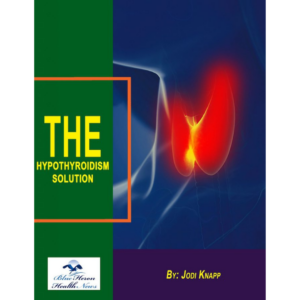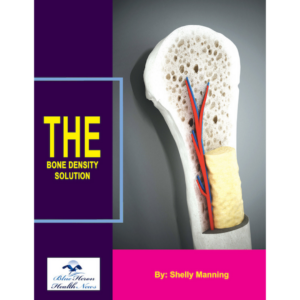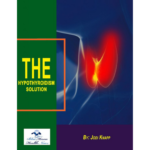Description
Hypothyroidism Review and Help
Hypothyroidism, also known as an underactive thyroid or low thyroid, is a condition in which the thyroid gland produces insufficient amounts of the hormones known as T3 and T4. These hormones play essential roles in regulating metabolism, growth, and development.
Symptoms of hypothyroidism are generally mild and include fatigue, weight gain, and sensitivity to cold. While some people may only experience temporary symptoms and require no treatment, others with hypothyroidism may need to take synthetic versions of these hormones for life.
In this article, you will learn about the common causes of hypothyroidism, its various symptoms, and how to manage it effectively.
What is Hypothyroidism?
Hypothyroidism is when the thyroid gland doesn’t produce enough hormones. The thyroid gland is located at the base of your neck. It produces thyroxine, also called T4 and triiodothyronine (T3), as well as other hormones. Thyroid hormone helps regulate metabolism — the body’s use of carbohydrates, fats, and proteins to create energy.
There are two types of hypothyroidism: Hashimoto’s thyroiditis and acquired hypothyroidism. Most cases of hypothyroidism are caused by autoimmune conditions such as Hashimoto’s thyroiditis or chronic lymphocytic thyroiditis, which are characterized by the immune system attacking the thyroid gland.
Hashimoto’s thyroiditis is an autoimmune disease in which the immune system attacks healthy tissue in the thyroid. With Hashimoto’s, antibodies develop against your own body tissues, causing inflammation that damages tissue function over time. This leads to hypothyroidism and other autoimmune diseases such as rheumatoid arthritis or celiac disease.
Acquired hypothyroidism occurs when something goes wrong with your thyroid gland. It can’t produce enough hormones on its own (endemic goiter) or when you take certain medications that interfere with the production of the thyroid.
Who is affected by hypothyroidism?
Hypothyroidism is a common condition, affecting about 5% of Americans. It’s most often diagnosed in women over 50, but it can occur at any age. An estimated 2% to 5% of people in the United States have hypothyroidism. Women are more likely than men to develop an underactive thyroid gland.
People with hypothyroidism often have other autoimmune diseases, such as lupus or rheumatoid arthritis. According to the National Institute of Diabetes and Digestive and Kidney Diseases (NIDDK), approximately 12 percent of people over age 12 have hypothyroidism.
Causes of hypothyroidism
Hypothyroidism is caused by low levels of thyroid hormones. The thyroid gland makes these hormones, and they help control the body’s metabolism. The most common cause of hypothyroidism is an autoimmune disorder called Hashimoto’s disease. This condition damages or destroys the thyroid gland, preventing it from making enough thyroid hormone. Hashimoto’s disease is also called autoimmune thyroiditis or chronic lymphocytic thyroiditis. Hashimoto’s disease can occur at any age, but it’s more common in women than men. It affects about 1 percent of the population.
Other causes of hypothyroidism include:
Stress and surgery — Stress can cause your immune system to react abnormally and attack your own tissues, including your thyroid gland. Surgery on your neck may also interfere with your body’s ability to produce enough thyroid hormone. In either case, symptoms usually show up within a few months after the event triggers the problem with your immune system or thyroid gland.
Autoimmune disorders — Some types of autoimmune disorders include celiac disease (which damages the small intestine), pernicious anemia (which destroys red blood cells), Addison’s disease (which causes low levels of certain hormones), and Graves’ disease.
Autoimmune disease —Inflammation of the thyroid gland causes antibodies to attack it. This may be due to an autoimmune disorder such as lupus or rheumatoid arthritis.
Congenital defects —Some babies are born with a defect in their thyroid gland that prevents it from producing enough hormone. Most of these babies develop normal hormone levels as they grow up.
Symptoms of hypothyroidism
There are several symptoms of hypothyroidism. These symptoms can vary from person to person and may not always be present. In general, the symptoms will include:
● Fatigue. This is one of the most common symptoms of hypothyroidism. If you’re not feeling well-rested even after a whole night’s sleep, you may have an underactive thyroid gland.
● Weight gain. Hypothyroidism can cause weight gain due to slowed metabolism and reduced energy levels.
● Muscle aches and pains. Some people with hypothyroidism experience muscle aches due to reduced oxygen flow in the blood supply to muscles, while others have no such problems.
● Dry skin and hair loss. Dry skin can occur when your body doesn’t produce enough sweat or tears. At the same time, hair loss can be caused by anemia or malnutrition due to low-calorie intake due to fatigue or poor appetite resulting from hypothyroidism.
● Constipation or diarrhea
● Mood swings and depression
Diagnosis
Hypothyroidism is usually diagnosed with a blood test called TSH (thyroid-stimulating hormone). This measures your thyroid-stimulating hormone level and gives doctors an idea of whether your thyroid is working properly or not. The normal range for TSH is between 0.5 and 5 mIU/L. If you have hypothyroidism, your TSH will be higher than it should be.
Other tests that are sometimes done include:
T4 — This measures the amount of circulating thyroxine (T4) in your blood. Thyroxine is produced by your thyroid gland and released into your bloodstream, where it travels around to different tissues throughout the body where it does its job as a hormone. Any problems with production or release cause low levels of T4 to be found in the blood.
Treatment
The treatment of hypothyroidism is to replace the hormone lacking in the body. This can be done using synthetic thyroxine (T4), which is converted into T3 by enzymes within the cells, or natural desiccated thyroid extract (DTE). DTE contains T4 and T3, and other essential hormones produced by the thyroid gland.
T4 is usually preferred as it is less expensive than DTE and has fewer side effects. However, some patients find that they do better on DTE. When treating hypothyroidism with T4, blood levels need to be regularly monitored until normalized. The dose will depend on how much hormone the patient needs to feel well again.






Reviews
There are no reviews yet.